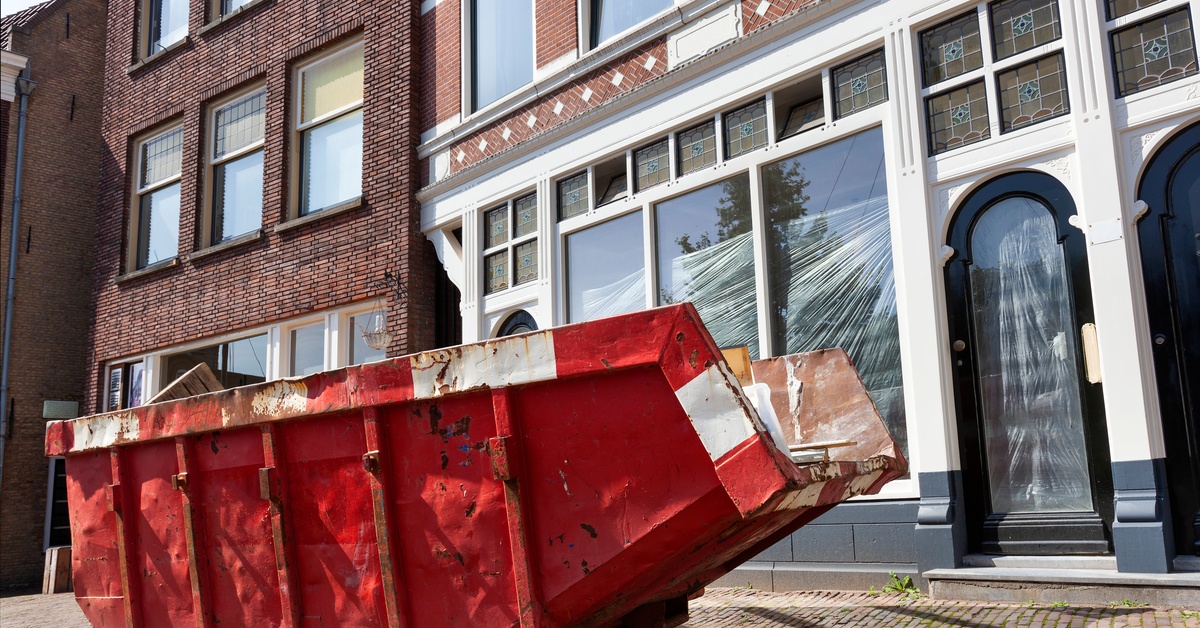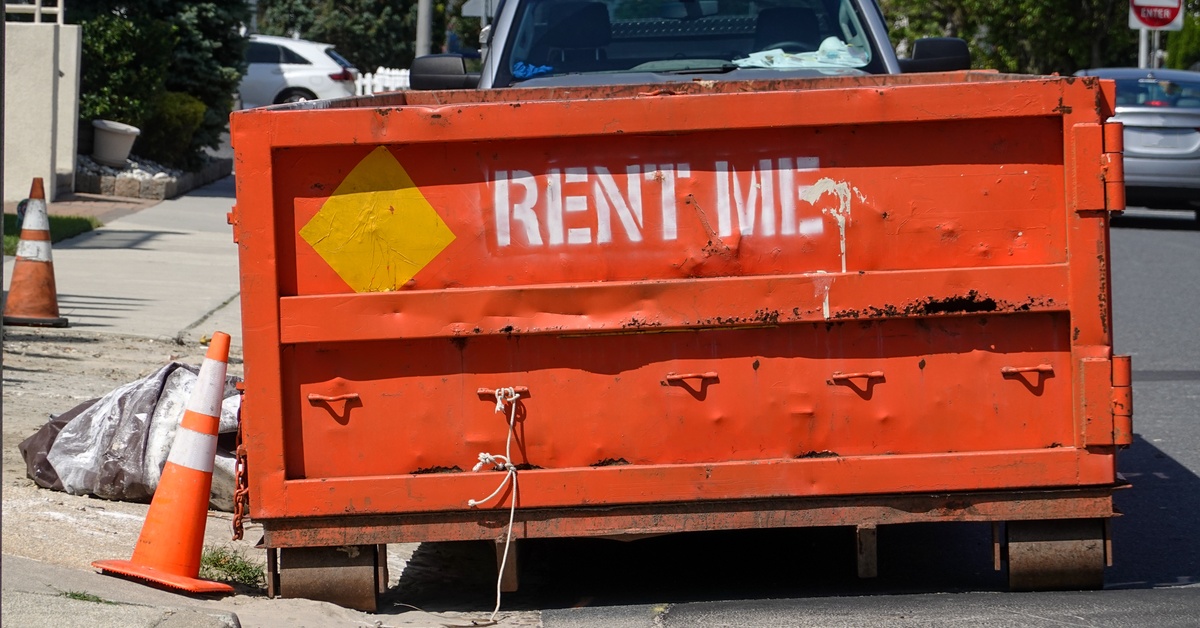
Navigating dumpster rental laws and regulations in Dallas and Fort Worth doesn’t have to feel like you’re walking through a maze. Local governments enforce specific rules to keep neighborhoods clean and ensure public safety. Whether you’re cleaning out a home, renovating a business, or tackling a landscaping project, compliance is key. Below, we break down the most important laws and regulations to help you follow the rules.
Permits for Dumpster Placement
You need a permit when placing a dumpster on public property. This includes streets, sidewalks, alleys, and other public rights-of-way. For example, in Fort Worth, placing a dumpster in a location that could obstruct vehicular or pedestrian traffic automatically requires a permit. Similarly, in Dallas, dumpsters that encroach on public areas, such as sidewalks or parking spaces, must undergo a permitting process to ensure safety and accessibility.
You typically don’t need permits for private property, such as personal driveways. However, some exceptions exist. Certain homeowner associations (HOA) establish their own rules regarding dumpster usage and placements in residential areas. These HOA regulations may include restrictions on placement, size, or the duration a dumpster can remain on a property. Therefore, it is essential to check your neighborhood’s guidelines before proceeding.
An Overview of the Permit Application Process
The permit application processes in Dallas and Fort Worth vary slightly. You’ll need to provide details about where the dumpster will sit, its size, how long you need it, and the rental company you’re working with.
Fort Worth allows you to complete the application online through their municipal website, making it quick and easy for most renters to fulfill this requirement. Dallas also provides online resources for applications, but for more complex cases, you might need to visit a city office to finalize the paperwork.
The application typically requires a nominal fee, and you’ll receive a document or sticker to confirm your permit. Keep this on hand in case local authorities or inspectors verify your compliance during your rental period.
Cost and Duration of Permits
For short-term rentals, Fort Worth fees usually stay below 50 dollars, while Dallas fees might vary depending on placement zones or situations, such as usage in downtown areas. If your project timeline extends or you need to relocate the dumpster during the rental, additional fees may apply. Always review the expiration date on your permit, and ensure any changes to your plans align with your city’s requirements.

Dumpster Size and Placement Rules
Dumpster size and placement matter a lot in keeping neighborhoods safe, functional, and visually appealing. The cities of Dallas and Fort Worth enforce size and placement rules to minimize problems such as blocked traffic or damage to public and private property.
Size Restrictions
Residential neighborhoods typically require smaller dumpsters, such as 10- or 15-yard models, because larger options can damage pavement, obstruct driveways, or cause congestion on narrow streets. Construction zones or commercial areas, however, accommodate larger models, such as 20 or 30 yards, to handle heavier loads.
Placement Dos and Don’ts
Dumpsters on public property, such as streets or sidewalks, need ample clearance from intersections and crosswalks to avoid blocking sightlines. Dallas recommends maintaining at least 10 feet of clearance from street corners, while Fort Worth enforces a 15-foot clearance around fire hydrants to keep emergency access open.
Placing dumpsters near your driveway or on stable ground is the best bet in residential areas, as they remain out of the way without creating safety hazards. Avoid soft surfaces like grass or dirt that could cause the dumpster to sink when loaded. You should also never block public access, including sidewalks or shared alleyways.
Violations and Consequences
Improper placement comes with hefty consequences. For example, placing a dumpster too close to an intersection could obstruct traffic or endanger pedestrians, leading to fines from city officials. Overwhelming curbs, leaving dumpsters overflowing with waste, or violating clearance rules might also result in additional removal fees.
Noise and Hour Restrictions
Both cities enforce strict timeframes to limit disturbances in residential neighborhoods. Dallas frequently restricts noisy activities to between 7:00 a.m. and 8:00 p.m. Fort Worth follows similar noise-control measures. If your project involves loud tasks beyond standard work hours, consider adjusting your schedule.
Construction zones have unique challenges when it comes to dumpster noise. While these areas typically allow more flexibility in operating hours, they must adhere to zoning rules that prevent excessive disruptions. Regulations in Fort Worth require noise levels in construction areas to stay within acceptable limits, even during peak working hours.
To maintain compliance, coordinate with your contractor or waste management provider to keep operations smooth. For instance, schedule dumpster deliveries and removals during approved work hours, and monitor the volume of high-impact construction tasks.
Prohibited and Allowed Dumpster Contents
One major part of dumpster rental regulations in Dallas and Fort Worth are the prohibited and allowed contents. Both places enforce strict rules to protect health, safety, and the environment. You can toss out furniture, yard trimmings, and nonhazardous construction debris from projects such as kitchen remodels or landscaping updates. For instance, you can dispose of brick, lumber, asphalt, paper, and cardboard.
However, you cannot use dumpsters for hazardous materials. Prohibited items include anything flammable, toxic, or corrosive. For instance, Dallas does not permit paints, solvents, car batteries, or cleaning chemicals. Fort Worth follows similar guidelines and includes bans on asbestos, pesticides, and biohazardous waste.
Appliances with refrigerants, such as mini-fridges or old window AC units, require certified disposal. Additionally, tires, car parts, and electronics, which can leach harmful substances into soil or groundwater, fall under specialized recycling programs rather than standard dumpsters.
Recycling and Special Waste Considerations
Certain materials can serve a better purpose through recycling or specialty waste programs rather than ending up in a landfill. Drop-off recycling services accept metals, clean wood, and glass.
Dallas and Fort Worth enforce strict rules against placing old TVs, laptops, or other e-waste in dumpsters. Donate these items, recycle them through certified facilities, or take them to neighborhood e-waste collection events.

Got the Rules? Get the Dumpster
Following local regulations is the first step to a smooth project, but choosing the right provider makes it even easier. At RED-E-BINS, we provide dumpster rentals in Fort Worth, TX. Our bins fit tighter spaces, protect driveways, and offer an eco-friendly approach, making them perfect for homeowners and contractors.
RED-E-BINS leads the way with licensed, reliable services that focus on compliance and customer satisfaction. Working with our team ensures proper waste disposal and keeps your project on track. We deliver bins on schedule and prioritize sustainable practices so you can tackle your cleanup without interference.
Choose RED-E-BINS to enjoy a stress-free and efficient experience from start to finish.
